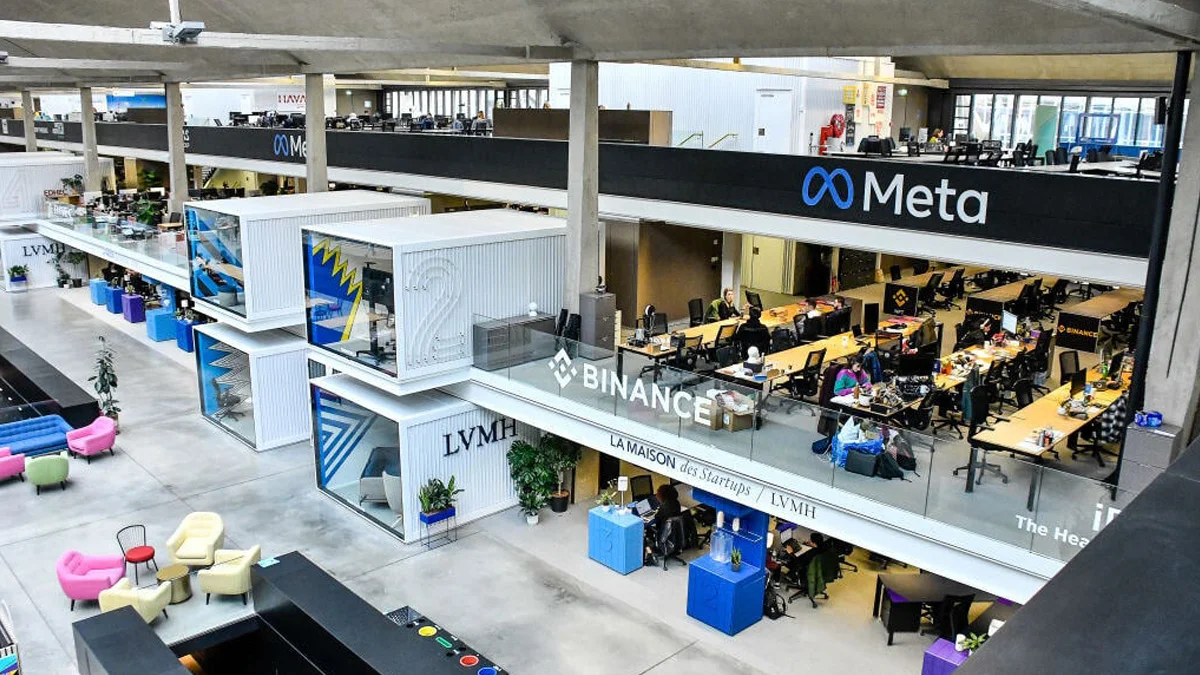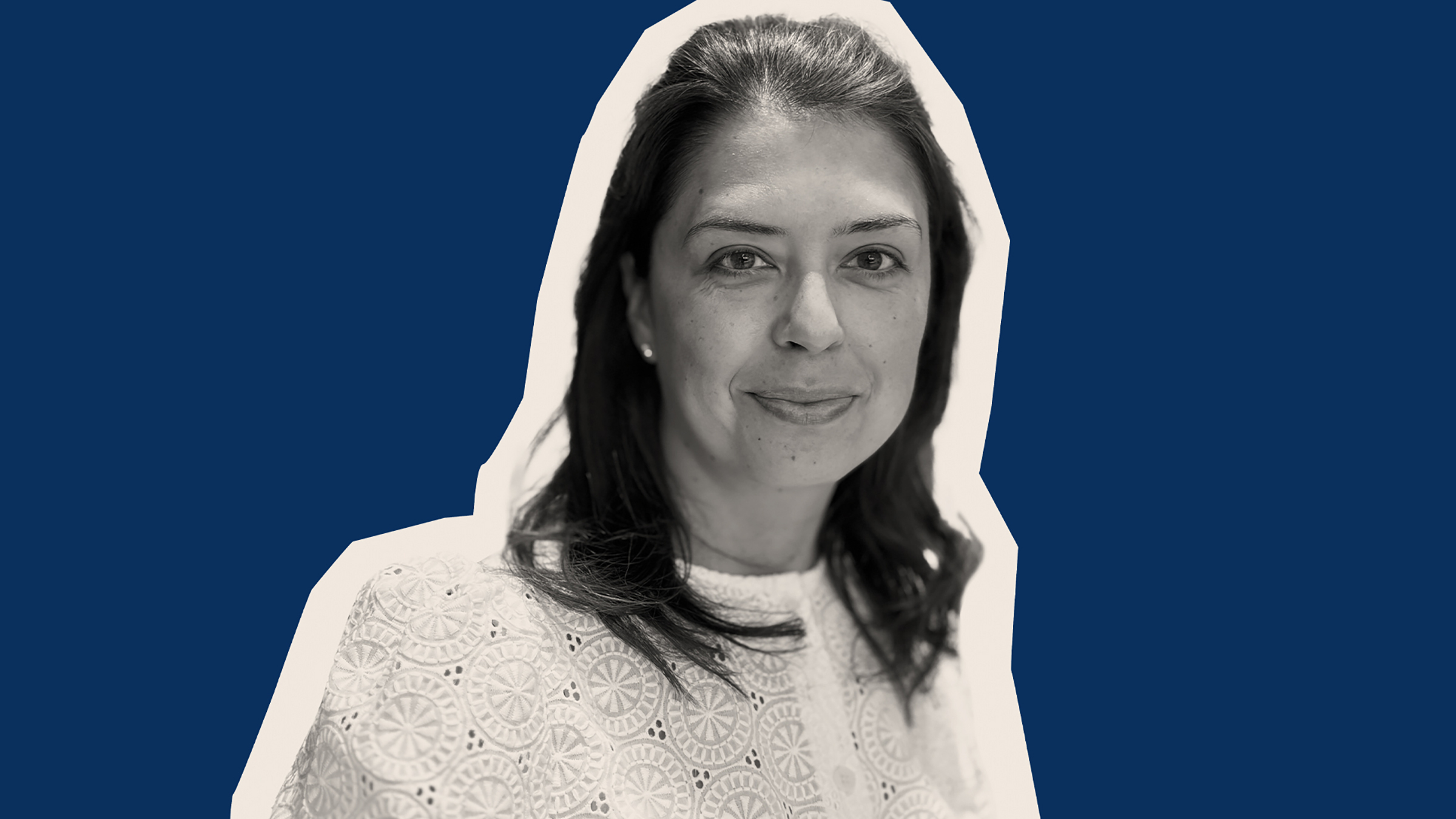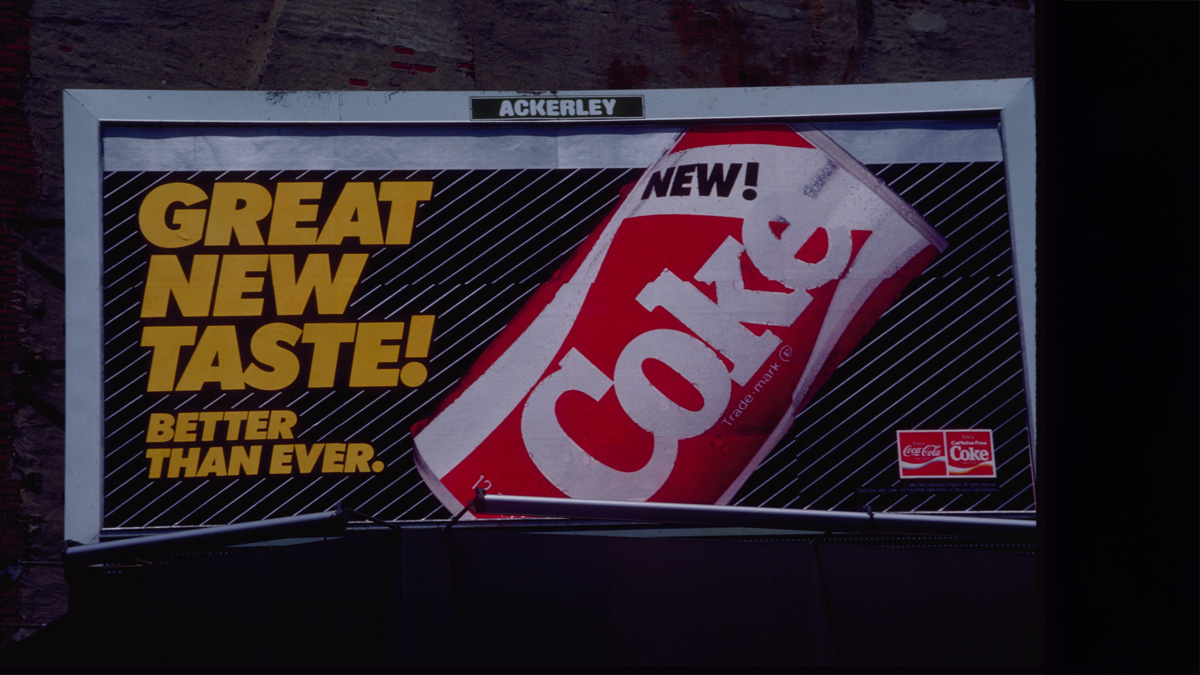
This article is an online version of our Off to Lunch newsletter. Sign up to receive it straight to your inbox here.
By Dougal Shaw
If you read Off to Lunch on Wednesday you will know that I took a day trip to Paris to visit Station F.
It hosts the largest collection of start-ups under one roof in the world. Around 1,000 start-ups base themselves there every year (some on a three or six-month rotation, none stay for more than two years). The impressive listed building is a former freight railway depot, near Gare d’Austerlitz, in the centre of Paris. It was opened in 2017.
I’ve never seen anything like it and the energy of the place was palpable.
I met up with three founders from different start-ups and one person who works on the incubator side, from the French business school EDHEC. I will explain a lot more about the things I learned from my visit in a forthcoming article and video.
But to whet your appetite, here are two surprising things that struck me being there.
Firstly, Station F functions with a compelling business model, because start-ups are themselves a commodity, in a sense, if you put them all under one roof at such a scale.
All kinds of institutions want to tap into the captive market that Station F has created, whether investors, educational establishments or government bodies. They will pay to have a presence. So this becomes a way for Station F, which hosts the start-ups, to become a viable business proposition, while also boosting national economic growth. It is run as a private enterprise, though it works closely with the state.
Secondly, even though Station F is all about boosting France’s economic credentials, it is actually very international in its outlook. Americans are the second most common members there, I was told, mainly because Microsoft and Meta have a corporate presence. In fact, before coming I had assumed only French people were allowed to apply to be based here, or perhaps start-ups with at least one French national on the team. But this is not the case at all. In fact, a British start-up could apply to be based here (places are tight).
Also, I can confirm the food on offer is very good, as you might expect in France. Suitably enough, the cafe area is surrounded by disused train carriages, painted in bright colours.
Time to consider a Eurostar commute?
Business Agenda
A summary of the most important business news
1. The managing director of Harrods has apologised and said the retailer "failed our colleagues” following allegations of sexual assault against Mohamed Al Fayed, the former owner. BBC story here.
2. More changes at OpenAI, the maker of ChatGPT. Mira Murati, the chief technology officer, is standing down and the start-up is planning to give Sam Altman, the chief executive, a stake in the business. More from Reuters here.
3. H&M, one of the largest clothing retailers in the world, has warned that profits have been hurt by fierce competition and discounting by rivals. More here.
4. Elon Musk has not been invited to the UK government’s International Investment Summit following a series of posts on social media about disorder in the UK over the summer. Report from the BBC here.
5. Businesses based in Tokyo are obsessed with locating their offices close to train stations because it is seen as vital for attracting staff, according to a fascinating Financial Times column here.
Business Question
According to a new survey, what percentage of companies think their current testing practices are efficient?
A. 52 per cent
B. 40 per cent
C. 29 per cent
D. 16 per cent
The answer can be found at the bottom of the page.
Business Thinker
Deep dives on business and leadership
By Dougal Shaw
Here’s a change in business activity related to the online shopping revolution that is good news for the Welsh economy too.
Shotton Mill in Flintshire is being turned into one of the UK's largest cardboard and tissue production facilities through a £1bn development by Turkish firm Eren Holding. The paper mill used to produce newsprint paper employing more than 500 people in the 1990s. However, that number dwindled with a decline in the demand for newsprint and the site was bought from UPM by family-owned Eren Holding in 2021.
At the moment, Britain exports much of its waste cardboard, which is recycled overseas and imported back for sale in the UK. Eren Holding said its new plant aims to process a quarter of the waste cardboard the UK currently sends abroad. It will focus on creating ‘containerboard’ - used to make packaging and corrugated boxes from recycled paper - as well as tissue products.
No doubt many of this new recycled cardboard packaging will end up sitting in warehouses, ready for distribution.
Business Quote
Inspiration from leaders
“How long are you going to wait before you demand the best for yourself?”
– Epictetus
Business Leader
The best of our content

Great success can come from sharpening your focus
In his latest expert column, Ed Smith, the former chief selector for England cricket, looks at what the career of bowler James Anderson can teach us about the power of specialism over breadth. "Some people tilt towards finding their purple patch and sticking it out. Others can tire of the last thing and switch focus," Smith writes. "It’s worth remembering that both intense specialisation and curious restlessness bring their own risks. I suspect most people move up and down the continuum, figuring it out as they go. Only the very few, like James Anderson, find that one style offers the perfect solution." You can read the piece in full here.
Other popular pieces
? Virgin Group’s CEO on why it’s important to be prepared to fail
?? The art of business wargaming
?? Redefining high performance in life and business
And finally...
A book recommendation for you - Nexus: A Brief History of Information Networks from the Stone Age to AI by Yuval Noah Harari. Harari is the author behind the best-selling books Sapiens and Homo Deus, which looked at what the history and evolution of humans could tell us about the future (a weighty topic).
His latest book is about artificial intelligence and what we can learn from how previous technological breakthroughs (like the printing press) have changed how humans communicate and share information. The book has had a mixed response from critics but offers a fascinating insight into how greater access to information does not necessarily make people smarter or more informed. You can find the book here.
The answer to today's Business Question is D. 16 per cent.
Related and recommended

Fashion entrepreneur Dessi Bell explains why customers are looking for something different when they shop on the high street

Think assistants are just admin managers? Think again. They might be your greatest business asset

The home appliances inventor and entrepreneur explains what he’s learned from sponsoring Brentford FC

An ill-fated product launch 40 years ago became one of the biggest marketing blunders ever and still holds lessons today

